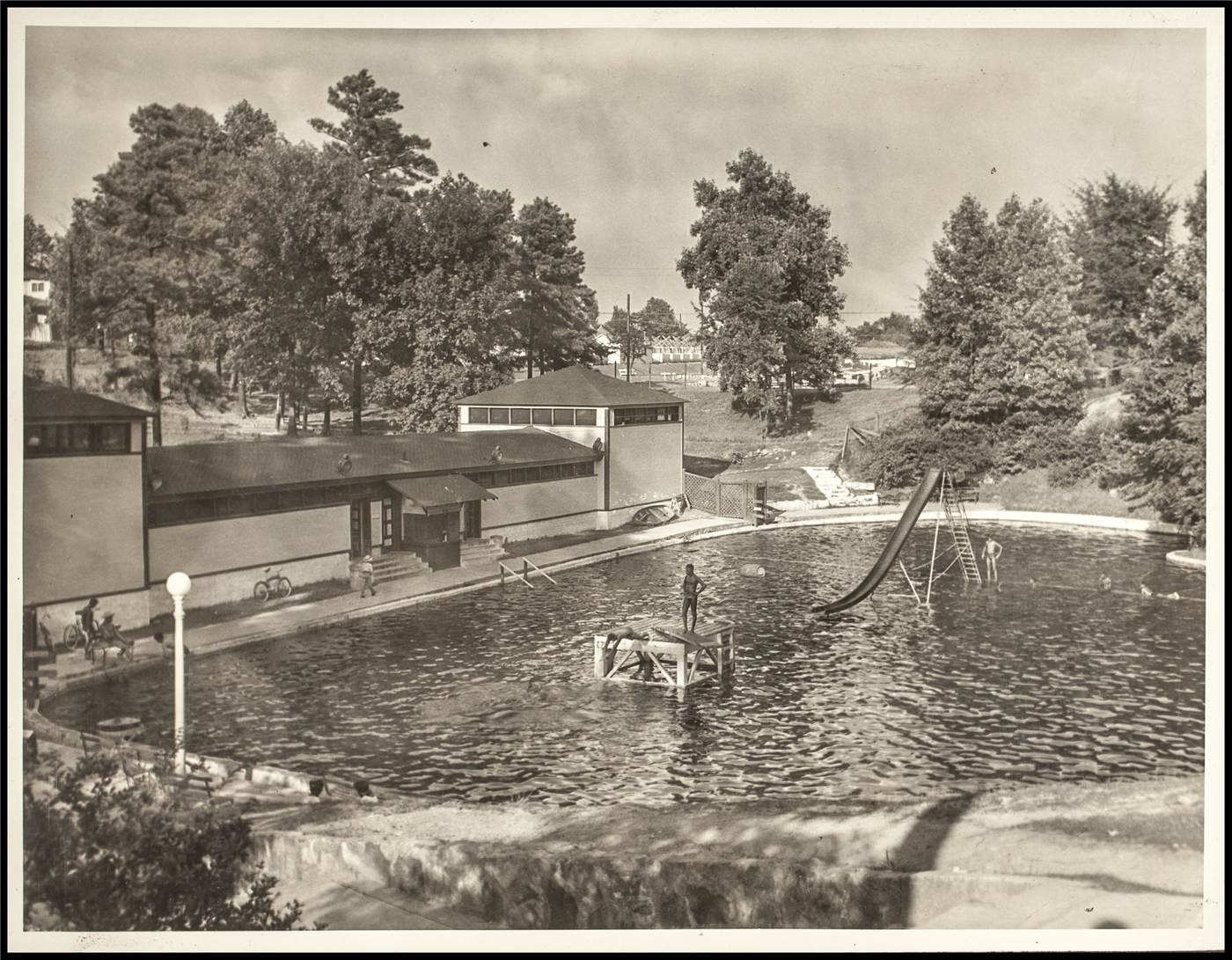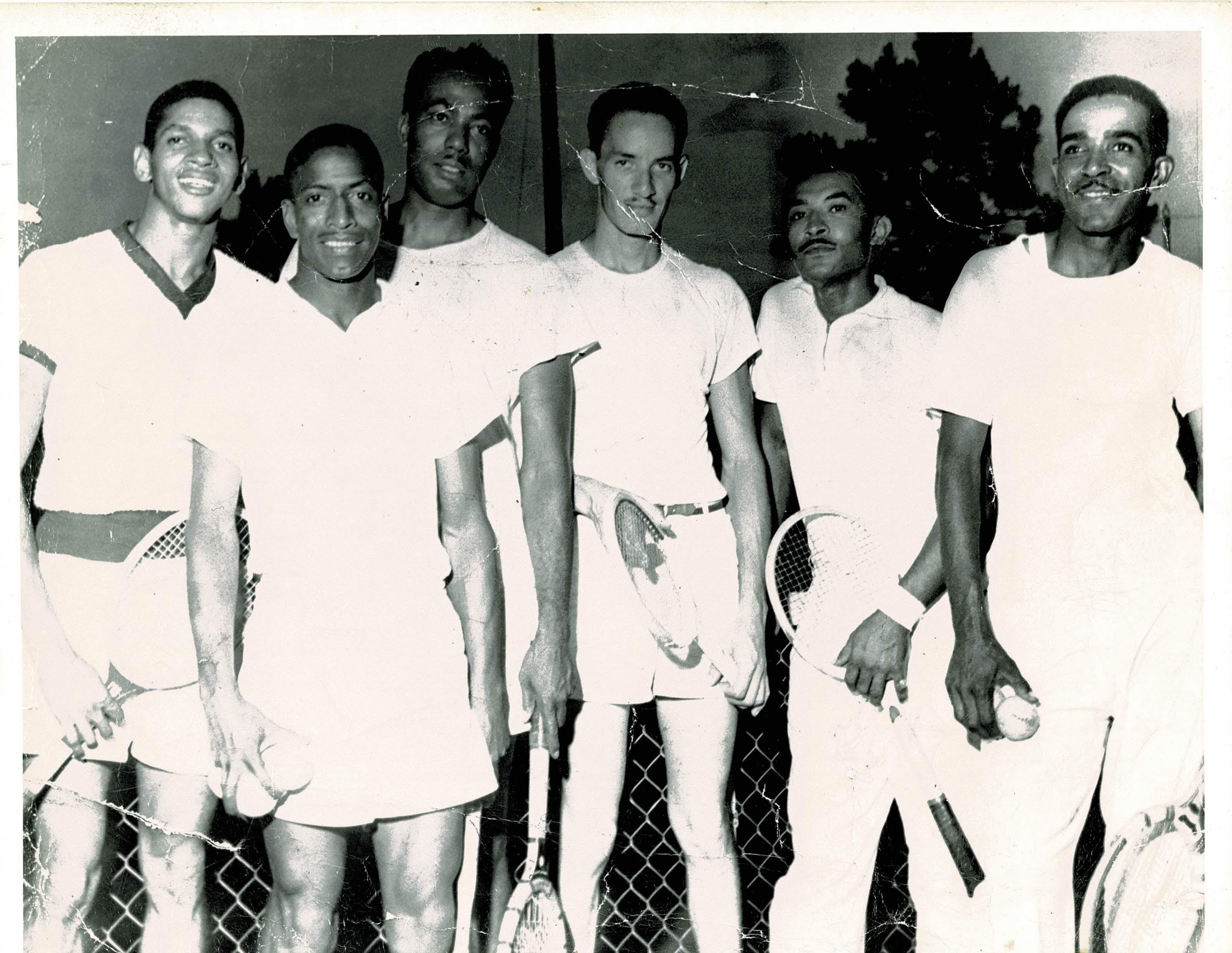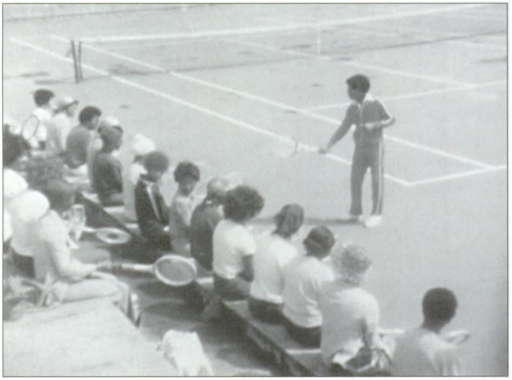The history of one of Atlanta’s most prominent Black communities is being preserved thanks to a partnership between the Conservancy at Historic Washington Park and the Hargrett Rare Book and Manuscript Library at the University of Georgia.

The project provides community access to the stories of Atlantans who lived, worked, and played in the community around Washington Park, which is the first public recreational greenspace created for African Americans in the city of Atlanta and the state of Georgia, as well as the first planned Black suburb in Atlanta, developed by businessman Heman Perry in the 1920s.
“Washington Park is where people came to recreate. This is where they learned to swim, to play tennis. This is where track meets happened. It’s the jewel of the Westside,” said CJ Jackson, chair of the Conservancy whose family ties to the community date back a century.
As a center of Black cultural life just blocks from the historic Booker T. Washington High School, the first public high school in Georgia for African American children, the neighborhood occupies an important space in the city’s history, and Jackson said that issues around gentrification have caused concern that important stories and contributions of historical figures will be lost.
“Many of our historic preservation efforts are simply a fight against erasure. We want to make sure that anyone who is wondering about Washington Park knows its history,” she said. “We want people to know that its existence contributed so much to the city of Atlanta.”

In addition to 30 boxes of documents, maps, photographs, and other items from the Conservancy, community ephemera and family papers from Westside neighbors are now housed in the UGA Special Collections Building, as part of the Washington Park Historic District archive.
“Partnerships like this are essential because community members lead the process of documenting and retelling their stories,” said Kathryn Mannis, community engagement librarian at the Hargrett Library. “We know that there are significant gaps in archival collections created by long histories of discrimination and inequity, and community archives projects can help repair some of the damage of those absences for current and future generations.”
Jackson said that she appreciates the measures in place to preserve the historical items while also ensuring that they are freely available to the public. Because of those safeguards, she is on a mission to help legacy community members understand the importance of preserving their own family mementoes, while she also works on a documentary about Washington Park.
Jackson said that while some people, understandably, have difficulty entrusting outsiders with family keepsakes, she encourages them to take the first step by taking pictures of documents and other personal materials, and sharing those photos with the archive while they hold on to their treasured items. But when older generations pass on or move away, Jackson wants neighbors to be aware that there are caretakers ready and able to not only preserve those items but make them available to the community, students, and researchers so that the stories of Washington Park live on.

“This work is not just about the past. It is more about seeding the future,” Jackson said. “We are seeding the future so that people will know the truth about where they come from. We don’t want young Black people to struggle to find themselves in the history of their community.”
As it is archived in one of three of the UGA Libraries’ special collections units, the Washington Park historical materials will continue to be discovered by younger generations around the world, Jackson added.
To learn more about the history of Washington Park, view this digital exhibit, researched and developed by UGA experiential learning student Monica Berg, thanks to the new archive.
To learn more about Hargrett Library's existing community archives or to engage in a community archiving partnership, please contact instruction and community engagement librarian Kathryn Manis at kathryn.manis1@uga.edu or 706-542-0671.
